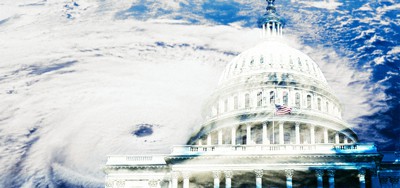Yes...The headline on this post is inflammatory and intended to attract eyeballs, visitors and clicks.
It's also totally accurate.
I'm posting this is because of this editorial in today's The New York Times that is both absolutely correct and incredibly naive when it comes to federal spending on natural disasters.
Here's the money quote:
The (69) proposals range from urging better cooperation among government agencies to recommendations for hardening and backing up the electrical grid to ensuring the availability of fuel and cell phone coverage.
It's appropriate that the editorial includes no estimates for the total or individual costs of the 69 recommendations because, honestly, that's irrelevant: The money is never going to be spent and few (none) of these proposals are going to be implemented.
This what The New York Times missed. As commonsense as it sounds to prevent or limit the damage from a Katrina- or Sandy-like disaster by taking steps (that is, by spending funds) to deal with them before they occur, the current politics of the federal budget make that impossible to do.
The sad truth is that, when it comes to the federal budget, it's much easier to pay for the suffering that happens after a tornado, earthquake or hurricane than to prevent or minimize the pain.
Why?
First, there's the still-thriving-but-incredibly-incorrect assumption that, no matter what it's for, government spending is wasteful, fraudulent and abusive and that it won't work as planned.
Second, there's almost always opposition because of an assumption that the spending will only prevent other people's suffering and won't do anything for you. To deal with this, the program would have to be so broad and the definition of natural disaster so sweeping that the costs would be too high for most members of Congress to stomach (See the first point for additional details).
Third, there's the frequent -- maybe even constant -- feeling that the spending isn't really needed because the big natural disaster won't ever happen, won't happen soon, won't happen in a member of Congress' lifetime (or term, which for most is the same thing), just happened so isn't likely to happen again or won't be that bad even if it does happen.
Put all of this together and the easiest thing for a member of Congress to do is to wait for a disaster to occur, wait until it's been covered night after night on CNN, Al Jazeera America, Fox News and MSNBC and then wait until the human and property damage becomes so intolerable that spending to deal (but not prevent) the problem is politically acceptable.

George Bush in the infamous "flyover" during hurricane Katrina.
That's clearly what happened with Katrina, when years of not spending to prevent it meant that the flood that occurred was of biblical proportions rather than contained. At that point George W. Bush quickly went from a president being against more federal spending to one who channeled Lyndon Johnson by insisting that the government would spend whatever was needed to deal with the situation.
It's also what happened with Sandy, when federal, state and local governments were unprepared for a storm of that magnitude and had to deal with a much harsher aftermath because of it.
The situation actually is even worse than this.
The opposition to federal spending by tea partiers in the House and Senate over the past few years has meant that even disaster-related suffering (unless it's in their district or state) hasn't made storm-related relief a political slam dunk.
That means that Congress may still need hurricanes to occur, but there's no guarantee that will be enough to deal with a problem that was exacerbated by the political unwillingness to focus early on the possibility it might occur.


